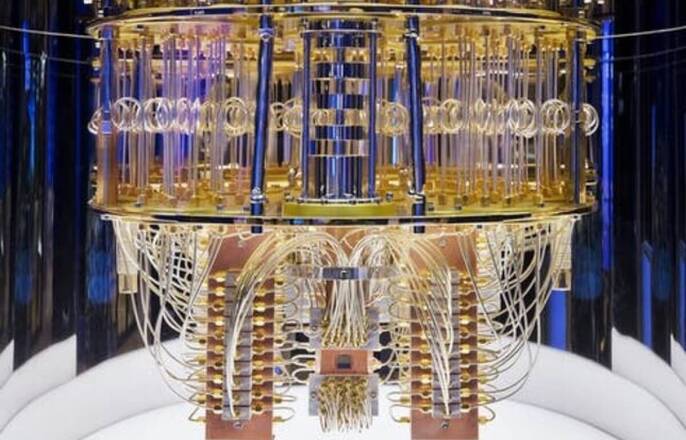
Google Quantum AI has brought MIT spinout Atlantic Quantum into its fold in what industry observers widely interpret as an acquisition, though Google’s official announcement refrained from using the term. The move underscores the growing urgency in quantum computing to solve the scalability problem that has long stood between laboratory prototypes and practical, error-corrected quantum systems.
Atlantic Quantum, founded in 2021 by a group of MIT researchers, focused on developing superconducting qubits and pioneering a modular chip stack architecture. Its breakthrough lies in integrating qubits with superconducting control electronics within the same cold stage, a design that reduces noise, streamlines complexity, and promises more efficient scalability. Financial terms were not disclosed.
For Google, which has invested heavily in superconducting qubit technology since the launch of its Quantum AI group in 2012, Atlantic’s approach represents a potential accelerant to its long-term goal of creating useful, error-corrected quantum computers.
In a blog post, Hartmut Neven, founder and head of Google Quantum AI, said Atlantic Quantum’s hardware design could help streamline the company’s superconducting platform.
“Atlantic Quantum’s modular chip stack will support Google Quantum AI in scaling our superconducting qubit hardware more efficiently and accelerating our roadmap toward real-world applications and a large error-corrected quantum computer,” Neven wrote. He pointed to the need for tighter integration between qubits and control systems as a necessary step to move from experimental processors, such as Google’s 2019 “quantum supremacy” demonstration and its recently unveiled Willow processor, to machines capable of solving problems classical computers cannot.
Atlantic Quantum’s CEO, Bharath Kannan, reflected on the journey in a LinkedIn post, describing the early years as “controlled chaos.” He highlighted the process of iterating quickly, making difficult decisions with limited data, and embracing setbacks as part of building pioneering hardware. “I knew building a company was hard,” Kannan wrote.
“What I didn’t realize was how much of it is about assembling little victories, managing chaos, and learning fast.” He credited the resilience of the founding team, which included co-founders Shereen Shermak, Simon Gustavsson, Jonas Bylander, Tim Menke, Youngkyu Sung, Leon Ding, and Will Oliver, as well as a network of advisors and investors, with helping Atlantic bring its technology to the point of global significance.
Error-Corrected Quantum Computers for Practical Use
For Google, the deal is as much about acquiring talent as technology. By integrating Atlantic’s researchers and engineers into its program, Google would strengthen its bench of superconducting specialists at a time when competition in quantum computing is intensifying.
Rivals such as IBM, Quantinuum, and PsiQuantum are pursuing different approaches, ranging from larger superconducting lattices to trapped ions and photonics. Meanwhile, governments and corporations worldwide have been accelerating investment in quantum programs, acknowledging the steep technical challenges and the high costs associated with building scalable systems.
The transaction also reflects a wider industry trend: research-intensive startups often find their technologies absorbed into larger corporate quantum initiatives rather than attempting to go it alone. The combination of long development timelines, intricate hardware requirements, and the need for deep financial backing makes partnerships or acquisitions increasingly common in the sector.
Atlantic Quantum’s co-founder and CTO, Simon Gustavsson, echoed this sentiment in his own post, noting that the company’s mission continues within Google. “The adventure doesn’t end here,” he wrote. “Building massive error-corrected quantum computers for practical uses is our goal as part of Google Quantum AI. We are eager to bring this to life.”
By incorporating Atlantic Quantum’s modular hardware approach and its experienced team, Google positions itself to tackle the scalability barrier with renewed momentum. While practical error-corrected machines remain years away, the move signals that the race to build them is entering a new phase, one in which consolidation and strategic acquisitions could determine who reaches the finish line first.


